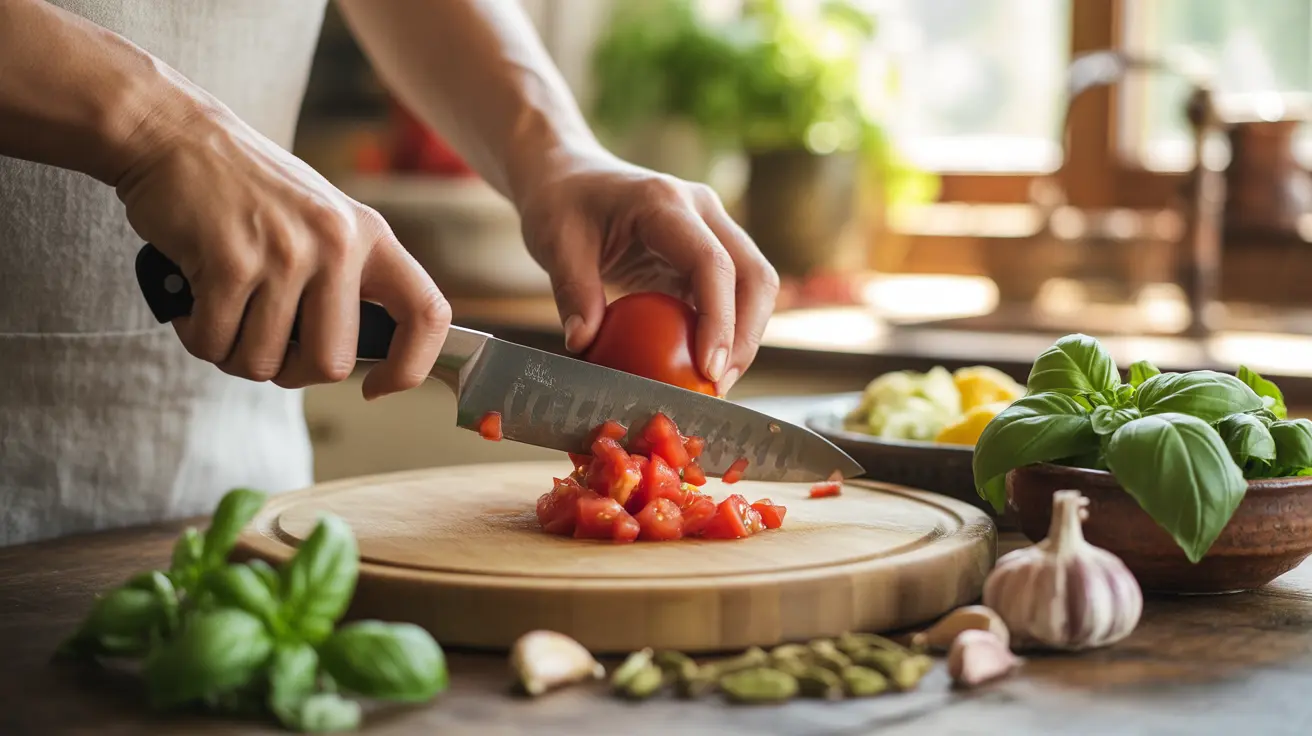Managing high blood pressure through natural methods has become increasingly popular among health-conscious individuals. While conventional medications remain the primary treatment for hypertension, certain herbs have shown promising results in supporting healthy blood pressure levels. This comprehensive guide explores evidence-based herbal options and how to incorporate them safely into your blood pressure management routine.
Understanding Herbs for Blood Pressure Management
Before incorporating herbs into your blood pressure management plan, it's essential to understand how they work and their potential benefits. Many herbs contain compounds that may help relax blood vessels, act as natural diuretics, or provide antioxidant effects that support cardiovascular health.
Most Effective Herbs for Blood Pressure Control
Garlic (Allium sativum)
Garlic stands out as one of the most researched herbs for blood pressure management. Its active compound, allicin, helps promote vasodilation and may reduce systolic blood pressure by 8-10 mmHg and diastolic pressure by 5-8 mmHg when taken regularly. Fresh garlic or aged garlic extract supplements are both effective options.
Basil
Both sweet and holy basil varieties contain compounds that may help relax blood vessels and reduce blood pressure. Adding fresh basil to your daily meals or consuming it as a tea can be beneficial for overall cardiovascular health.
Cardamom
This aromatic spice has shown potential in reducing blood pressure through its antioxidant and diuretic properties. Regular consumption of cardamom, whether in cooking or as a supplement, may help maintain healthy blood pressure levels.
Beneficial Spices for Blood Pressure
Cinnamon
Regular cinnamon consumption may help reduce both systolic and diastolic blood pressure, particularly in people with diabetes. Adding 1-2 grams of cinnamon to your daily diet can be a simple way to support healthy blood pressure.
Celery Seeds
Celery seeds contain compounds that act as natural diuretics and may help relax blood vessel walls. They can be used whole in cooking or taken as a supplement under proper guidance.
Safe Integration of Herbs into Your Diet
When incorporating herbs for blood pressure management, start with these practical steps:
- Add fresh herbs to your daily meals
- Consider making herbal teas
- Use whole spices in cooking
- Start with small amounts and gradually increase
- Maintain consistent daily intake
Important Safety Considerations
While herbs can be beneficial, they require careful consideration:
- Always consult healthcare providers before starting herbal supplements
- Monitor blood pressure regularly
- Be aware of potential interactions with medications
- Choose quality supplements from reputable manufacturers
- Follow recommended dosages strictly
Frequently Asked Questions
What herbs are proven to help lower high blood pressure naturally?
Garlic, basil, cardamom, and celery seeds have shown the most promising scientific evidence for helping to lower blood pressure naturally. These herbs work through various mechanisms including vasodilation, diuretic effects, and antioxidant properties.
How does garlic affect blood pressure and is it as effective as medication?
Garlic can lower blood pressure by promoting blood vessel relaxation through its active compound allicin. While it can be effective, garlic shouldn't replace prescribed medications without medical supervision. Studies show it may reduce systolic pressure by 8-10 mmHg when used regularly.
Can spices like cinnamon and celery seeds be safely used to manage high blood pressure?
Yes, both cinnamon and celery seeds can be safely used as part of a blood pressure management plan. Cinnamon may help reduce blood pressure particularly in diabetic individuals, while celery seeds act as natural diuretics. However, they should be used as supplements to, not replacements for, prescribed medications.
Are there any risks or interactions when taking herbal supplements for high blood pressure?
Yes, herbal supplements can interact with blood pressure medications and other drugs. Some herbs may increase bleeding risk or affect kidney function. Always consult with healthcare providers before starting any herbal supplement regimen.
How should herbs and spices be incorporated into a lifestyle plan to support healthy blood pressure?
Incorporate herbs and spices gradually into your daily routine through cooking, teas, or supplements. Start with small amounts, maintain consistency, and combine their use with other healthy lifestyle habits like regular exercise and a balanced diet. Monitor blood pressure regularly and keep your healthcare provider informed of any herbal supplements you're taking.




